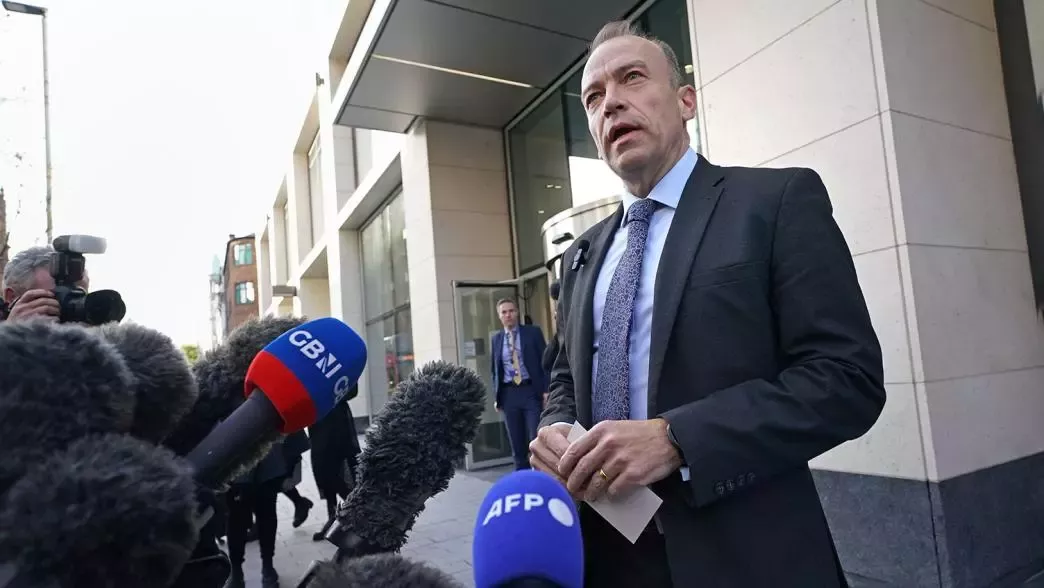Northern Ireland water charges illustrate the tough decisions facing Chris Heaton Harris
Northern Ireland's water charging row is one which may need to be resolved in Westminster.

The debate over whether to introduce water charges in Northern Ireland has returned to the headlines – with Jill Rutter arguing that the argument has exposed the failings in its system of government
There is more public spending per head in Northern Ireland than in other nations of the UK unsurprising given relative need – but there is also less revenue raised from its citizens. With its public finances in a dire state, Chris Heaton-Harris, the secretary of state for Northern Ireland, has returned to the contentious territory of water charges as he seeks to identify new revenue sources. The fact that it is Heaton-Harris who must decide how to balance the books is a reminder of Northern Ireland’s immature – and ineffective – system of government.
Water charges are controversial – but Northern Ireland’s public finances are in a dreadful state
Unlike households in England, Scotland and Wales, there are no water charges in Northern Ireland – even though their water industries are organised differently. Two myths have distorted discussion of this issue in Northern Ireland. The first is that "we pay for water through the regional rate”, even though the sum of council tax and water charges in England and Wales is [nearly twice] the level of the total rates in NI. The second is that “it’s a step towards privatisation", but this doesn't necessarily follow – Scottish Water is publicly owned and Welsh Water is a social enterprise. This widely acknowledged anomaly was estimated by the NI Fiscal Commission to cost the Executive £345m in 2020-21 alone compared to its GB counterparts.
But it is an issue which has been left unaddressed since 2007. Indeed, any savvy Northern Irish politician could look at what happened when the Republic of Ireland introduced charges in 2014, only to suspend them a year later after a wave of public protests – and then continue that suspension. Now the Republic has reverted to a “free allowance” of water with a charge only for “excess use”. Their experience with water charging has become a case study in "how not to do policy." 4 September2018 - University of Galway
So Chris Heaton-Harris is thus entering controversial territory by using his powers to ask Northern Ireland civil servants to come up with proposals for introducing water charges, as a possible route to repairing public finances there. In the past, UK ministers planned their introduction during the Executive hiatus between 2002-7 and then suddenly switched tack to turn the proposal into a threat, as part of the drive to restore power sharing in 2007. Sinn Fein is now accusing the UK government of using a similar ploy this time round to scare the DUP back into power sharing. But given the dire state of Northern Ireland’s finances, increasing locally raised taxes and charges would also be a good way of balancing the books.
A UK secretary of state could be braver than domestic politicians
Few governments envisage major and unpopular tax reforms in the run-up to a general election. Heaton-Harris would be unlikely to be getting plaudits from any of his colleagues if he tried this move on UK taxes or charges – and the reaction to the Uxbridge by-election has restoked nervousness about any potential additional burdens on households. But there are no Conservative party seats at stake in any upcoming election in Northern Ireland.
The absence of the Executive creates a potential window for what might be regarded as sensible and overdue technocratic reform which locally elected politicians would forever avoid or where they would be unable to find an agreed way forward. In that sense it also builds on the precedents set when parliament forced an update to Northern Irish laws on abortion and same sex marriage during the 2017-20 hiatus with no Executive – moves that were bitterly opposed by some Northern Irish politicians while being welcomed by others. A charging regime could leave a long-term legacy of a higher taxable capacity that would benefit future Executives without current politicians facing the electoral consequences.
A Westminster decision on water charges further infantilises Northern Irish government
The fact that Northern Ireland’s own governments repeatedly duck difficult financial choices, despite the lack of electoral jeopardy entailed by mandatory power-sharing when it works, underlines the immaturity of the system.
A pattern has been established of repeated requests for special bail-outs from the Westminster government – which have regularly been forthcoming, but never seem to translate into lasting solutions. Even so, public services are suffering, and civil servants are being forced to make impossible decisions to manage the budget bequeathed them when the Executive collapsed.
It would clearly be better if locally elected and accountable politicians took responsibility for sorting the mess out. But in the absence of that leadership it would be better in the long-term for Northern Ireland if Heaton-Harris holds his nerve and shows that he is prepared to take difficult decisions even if local politicians are not willing to, rather than have the threat of water charges exposed again as the go-to sabre to be rattled whenever Westminster tries to find a way to bribe a collapsed Executive back into existence.
- Topic
- Devolution
- Keywords
- Local government Public spending Tax The union
- Political party
- Democratic Unionist Party Sinn Féin Conservative
- Administration
- Sunak government
- Department
- Northern Ireland Office
- Devolved administration
- Northern Ireland executive
- Public figures
- Chris Heaton-Harris
- Publisher
- Institute for Government